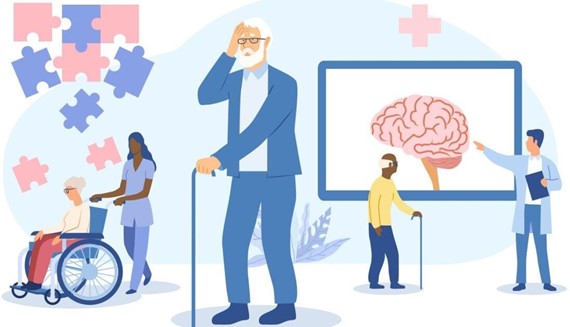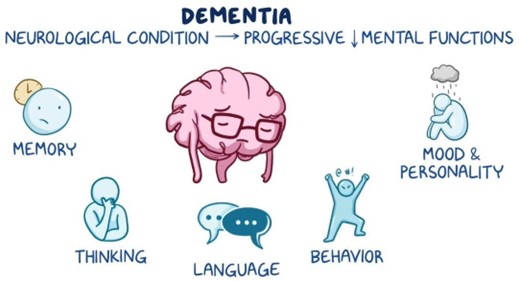An older adult in the middle and late stages of Alzheimer's forgets where the bathroom is and has episodes of incontinence. Which intervention should the nurse suggest to the client's family?
Label the bathroom door.
Take the older adult to the bathroom hourly.
Place the older adult in disposable adult briefs.
Limit the intake of oral fluids to 1000 mL/day.
The Correct Answer is A
A. Labeling the bathroom door can provide a visual cue to help the older adult locate the bathroom, which may reduce episodes of incontinence.

B. Taking the older adult to the bathroom hourly is a good strategy, but it may not always be feasible or effective in preventing accidents.
C. Using disposable adult briefs may be necessary at times, but it should not be the first line intervention.
D. Limiting oral fluids to 1000 mL/day may lead to dehydration and is not an appropriate intervention for addressing incontinence.
Nursing Test Bank
Naxlex Comprehensive Predictor Exams
Related Questions
Correct Answer is C
Explanation
A. The Michigan Alcohol Screening Test (MAST) is a tool used to screen for alcohol abuse or dependence, but it does not specifically assess withdrawal symptoms.
B. The CAGE questionnaire is used to screen for alcohol abuse, but it does not assess withdrawal symptoms.
C. The Clinical Institute Withdrawal Assessment for Alcohol (CIWA) is a validated tool used to assess the severity of alcohol withdrawal symptoms. It includes various criteria such as agitation, tremor, and hallucinations.
D. The Delirium Rating Scale (DMSE) is used to assess the severity of delirium, which can be caused by various factors including alcohol withdrawal, but it is not specific to alcohol withdrawal.
Correct Answer is A
Explanation
A. "He may begin to try to cover recognition of his memory loss by creating events." As
dementia progresses, individuals may experience confabulation, which involves creating false memories to compensate for memory loss. This is a common symptom seen in the middle stages of dementia.
B. "He may have difficulty in a motor skill such as walking." While motor skills may be affected in the later stages of dementia, it is not typically one of the early signs.
C. "The inability to communicate with speech comes immediately after the early signs." This statement is not accurate. Communication difficulties may occur in later stages, but it is not an immediate progression from early signs.
D. "He may not recognize you and other people who have been in his life." This symptom, known as agnosia, may occur in later stages of dementia, but it is not one of the early signs.

Whether you are a student looking to ace your exams or a practicing nurse seeking to enhance your expertise , our nursing education contents will empower you with the confidence and competence to make a difference in the lives of patients and become a respected leader in the healthcare field.
Visit Naxlex, invest in your future and unlock endless possibilities with our unparalleled nursing education contents today
Report Wrong Answer on the Current Question
Do you disagree with the answer? If yes, what is your expected answer? Explain.
Kindly be descriptive with the issue you are facing.
